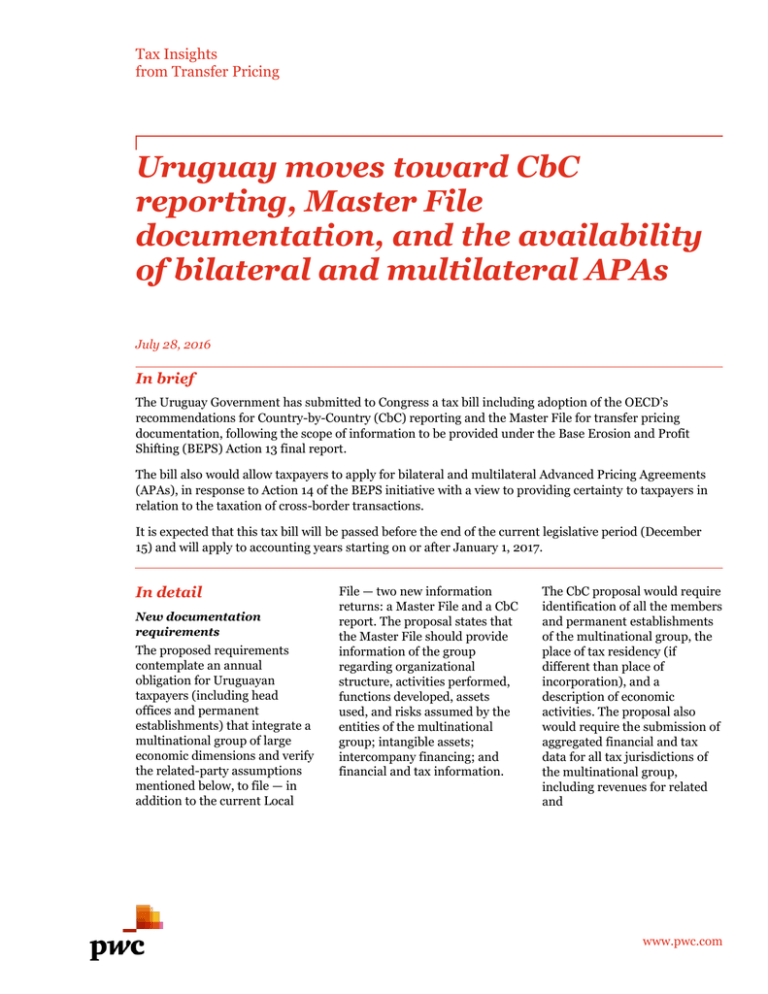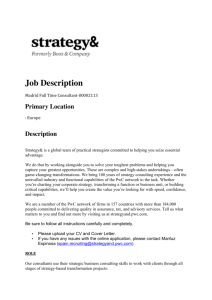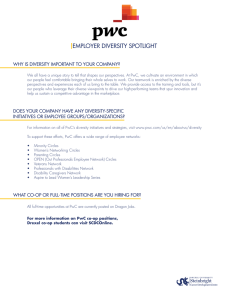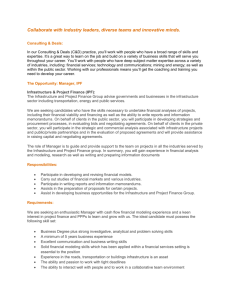
Tax Insights
from Transfer Pricing
Uruguay moves toward CbC
reporting, Master File
documentation, and the availability
of bilateral and multilateral APAs
July 28, 2016
In brief
The Uruguay Government has submitted to Congress a tax bill including adoption of the OECD’s
recommendations for Country-by-Country (CbC) reporting and the Master File for transfer pricing
documentation, following the scope of information to be provided under the Base Erosion and Profit
Shifting (BEPS) Action 13 final report.
The bill also would allow taxpayers to apply for bilateral and multilateral Advanced Pricing Agreements
(APAs), in response to Action 14 of the BEPS initiative with a view to providing certainty to taxpayers in
relation to the taxation of cross-border transactions.
It is expected that this tax bill will be passed before the end of the current legislative period (December
15) and will apply to accounting years starting on or after January 1, 2017.
In detail
New documentation
requirements
The proposed requirements
contemplate an annual
obligation for Uruguayan
taxpayers (including head
offices and permanent
establishments) that integrate a
multinational group of large
economic dimensions and verify
the related-party assumptions
mentioned below, to file — in
addition to the current Local
File — two new information
returns: a Master File and a CbC
report. The proposal states that
the Master File should provide
information of the group
regarding organizational
structure, activities performed,
functions developed, assets
used, and risks assumed by the
entities of the multinational
group; intangible assets;
intercompany financing; and
financial and tax information.
The CbC proposal would require
identification of all the members
and permanent establishments
of the multinational group, the
place of tax residency (if
different than place of
incorporation), and a
description of economic
activities. The proposal also
would require the submission of
aggregated financial and tax
data for all tax jurisdictions of
the multinational group,
including revenues for related
and
www.pwc.com
Tax Insights
unrelated parties; profit (loss) before
income tax; income taxes paid and
accrued income tax; stated capital;
accumulated earnings; number of
employees; and tangible assets.
Related-party relationship would be
verified when both parties are subject,
directly or indirectly, to the
management or control of the same
individuals or legal entities. Also, the
relationship would be verified when
both parties — due either to their
participation in capital interest, the
level of their credit rights, or their
functional or any other type of
influence (whether contractual or not)
— have decision power to direct or
define the taxpayer’s activities.
Multinational groups of large
economic dimension would be those
whose consolidated income exceeds
the limit set for this purpose by the
Uruguayan Executive Power.
The CbC report could be used by the
local tax authority (DGI) for
complying with its duties and for the
exchange of information with
competent authorities of foreign
states, in the framework of
international agreements and
respective protocols of understanding
ratified by Uruguay, ensuring
confidentiality and reciprocity.
Taxpayers would not be subject to
filing the CbC report when the return
is submitted by an entity that is part of
a multinational group that files a CbC
report with a foreign tax
administration of a jurisdiction with
which Uruguay has an exchange of
information agreement in force, and
the report can be effectively
exchanged with DGI.
The tax bill states that taxpayers must
notify DGI of the identity and tax
residence of the reporting entity, in
the terms and conditions stated by the
tax administration.
2
This means that the entity obliged to
submit the reports could be the
Uruguayan taxpayer, the ultimate
parent entity, or the surrogate parent
of the multinational group. The
regulation of the law will state the
conditions for the filing.
Bilateral and multilateral APAs
The proposed draft law also would
allow taxpayers to apply for bilateral
and multilateral APAs — in response
to Action 14 of the BEPS initiative —
with a view to providing certainty in
relation to the taxation of crossborder transactions, and in line with
OECD best practice guidance.
enhance their risk assessment process
and result in more in-depth transfer
pricing audits.
Given the significant tax and transfer
pricing regulatory reform taking place
with the OECD BEPS project, and
considering also Uruguay’s extensive
tax treaty network, broadened APA
legislation could become an important
tool for multinationals in Uruguay to
manage increasing uncertainty and
tax risk relating to complex relatedparty transactions and resulting profit
allocations.
A bilateral APA is a binding
agreement between two tax
administrations and a multinational
enterprise, under the relevant double
tax treaty, regarding the transfer
pricing to be applied to related-party
transactions. The purpose of the
bilateral APA is to prevent disputes
between tax administrations and
taxpayers with respect to specific
transactions in accordance with
relevant double tax treaties and
ultimately to avoid double taxation
relating to relatively complex transfer
pricing issues.
The takeaway
With the expected enactment of this
transfer pricing documentation
obligation, Uruguay joins an
increasing number of countries that
formally are adopting such
requirements aligned with the OECD’s
BEPS initiatives and Action 13, in
particular.
The Uruguayan tax authorities
increasingly have been turning their
attention toward transfer pricing to
address a perceived risk of erosion of
Uruguayan tax base, and the new
requirements will provide them with
extensive information on intra-group
transactions. This is expected to
pwc
Tax Insights
Let’s talk
For a deeper discussion of how this issue might affect your business, please contact:
Transfer Pricing
Daniel Garcia, Montevideo
+598 2 916 0463
garcia.daniel@uy.pwc.com
Raquel Balsa, Montevideo
+598 2 916 0436
raquel.balsa@uy.pwc.com
Transfer Pricing Global and US Leaders
Isabel Verlinden, Brussels
Global Transfer Pricing Leader
+32 2 710 44 22
isabel.verlinden@be.pwc.com
Horacio Pena, New York
US Transfer Pricing Leader
+ 1 646 471 1957
horacio.pena@us.pwc.com
Stay current and connected. Our timely news insights, periodicals, thought leadership, and webcasts help you
anticipate and adapt in today's evolving business environment. Subscribe or manage your subscriptions at:
pwc.com/us/subscriptions
SOLICITATION
© 2016 PwC. All rights reserved. PwC refers to the PwC network and/or one or more of its member firms, each of which is a separate legal entity.
Please see www.pwc.com/structure for further details.
This content is for general information purposes only, and should not be used as a substitute for consultation with professional advisors.
PwC helps organisations and individuals create the value they’re looking for. We’re a network of firms in 157 countries with more than 195,000 people
who are committed to delivering quality in assurance, tax and advisory services. Find out more and tell us what matters to you by visiting us at
www.pwc.com
3
pwc






